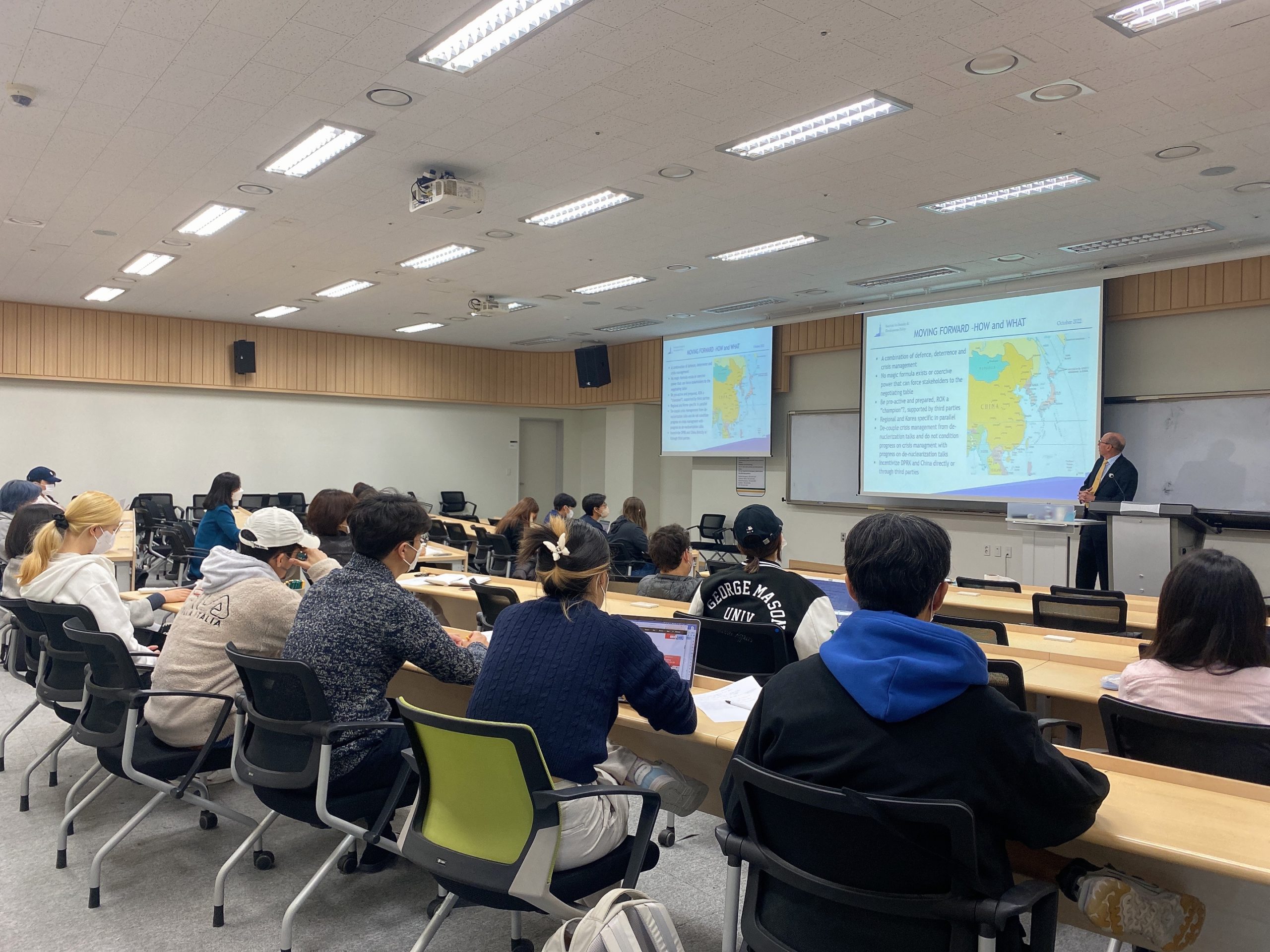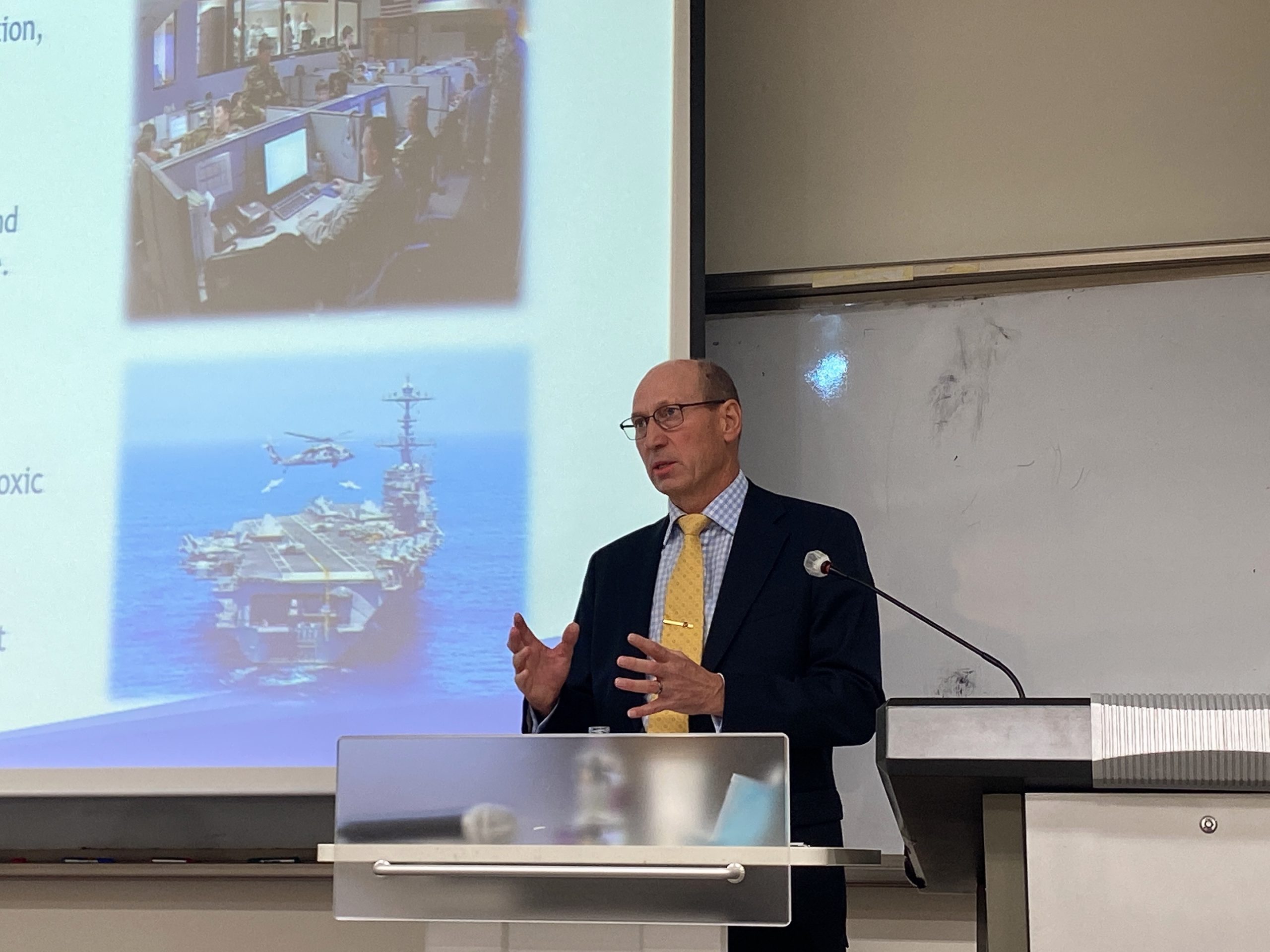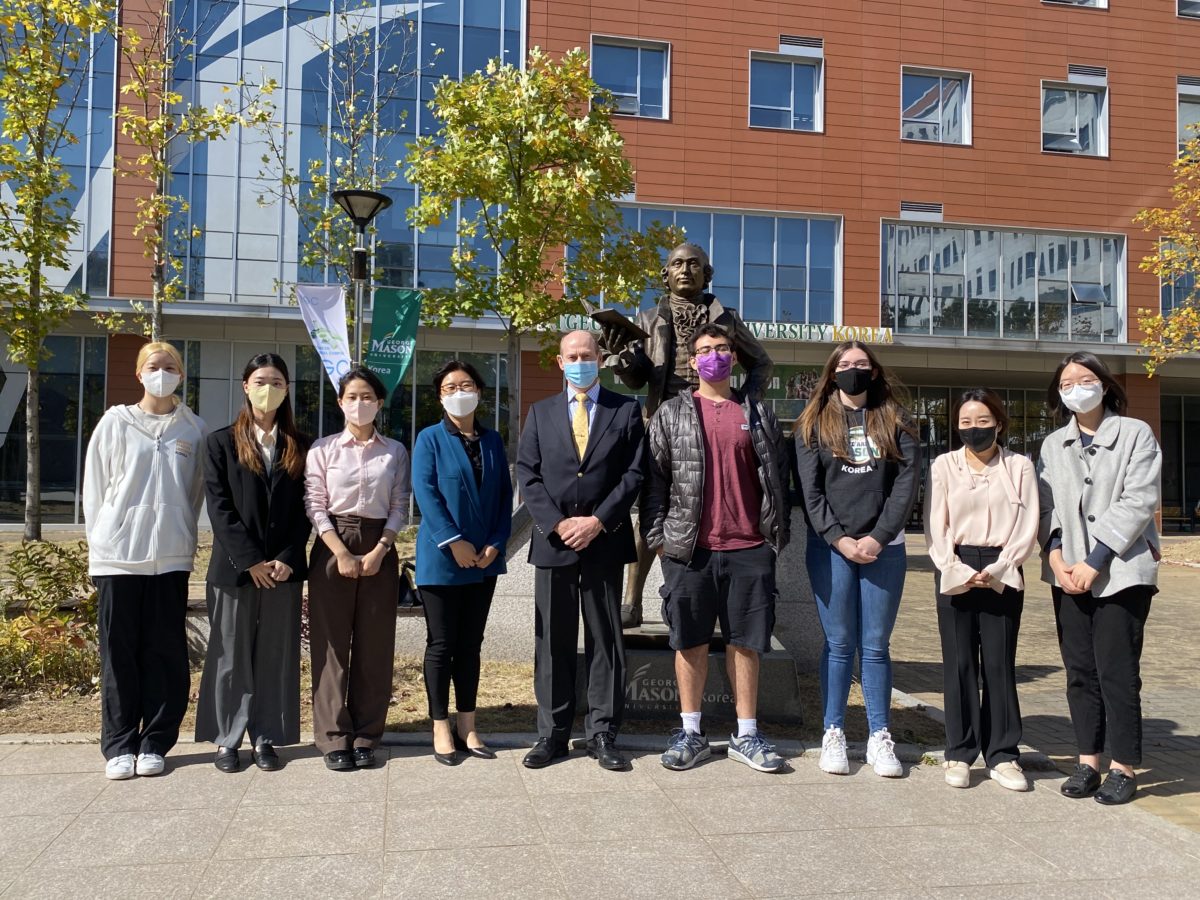On October 19th, Major General (ret.) Mats Engman, a distinguished military fellow at the Institute for Security & Development Policy, visited George Mason’s branch campus in Songdo, South Korea to discuss the topic <The Past, Present, and Future of DMZ: A Crisis Management System Today and for the Future>. In his presentation, Major General (ret.) Engman addressed several questions about the implementation of a crisis management system such as why we need a system, what systems exist today, what the future requires, and what can we do going forward. For each of these questions, Major General (ret.) Engman utilized his vast expertise in the fields of security policy, military strategy, and crisis management to provide thorough and in-depth answers.
When answering the question of why we need a system, Major General (ret.) Engman emphasized that there are too many strong authoritarian regimes. North Korea, for example, currently sits in a relatively comfortable position. It has gained a new friend in Moscow and has enough credible nuclear deterrents to threaten its enemies. This poses a serious risk of spill-over effects on conflicts regarding the Taiwan Straits, the China-India border, and the South China Sea. A properly employed crisis management system will outline the necessary conditions for negotiation and increase trust in the masses by implementing a system that can better address multiple conflicts at a time rather than just one by one. Sadly, Major General (ret.) Engman asserts that not much exists today in the form of crisis management systems. He states that the UN system and its security council are heavily politicized and limited in the action that they can take. Moreover, the prior agreements that have been reached, such as the Armistice Agreement, are extremely outdated and do not account for the necessities of today’s and tomorrow’s world.
Major General (ret.) Engman proceeds to explain what the future requires. Here, he discusses how society today is much more exposed to technological threats. Hybrid attacks utilizing automation, AI, robotics, and hyper-sonics are more difficult to counter, as the perpetrator is generally difficult to clearly identify. This has created a new manner of warfare and a new type of battleground – a cognitive one. In this cognitive domain, the battle is for information. Major General (ret.) Engman notes that the West is at a disadvantage in this new field as opposed to the traditional fields of land, sea, and air. In this new domain, the key is to understand how the opponents think and predict how they react. There are certain ethics pertaining to the experimentation of human beings that are upheld in Western countries that simply do not exist in authoritarian regimes.
Lastly, Major General (ret.) Engman addresses what we can do going forward. He provides the European perspective on this topic. He cites the Helsinki process during the Cold War and the importance of a charged acceptance to reduce the risks of unintended incidents. Most importantly, he notes the necessity of implementing a multilateral approach aided by institutions. Major General (ret.) Engman concludes with an overview of how this future can be achieved including suggestions such as utilizing third parties to incentivize change in authoritarian regimes, being proactive and prepared, and finding novel ways to use existing agreements. After finishing his presentation, Major General (ret.) Engman received numerous questions from the audience concerning the contribution of Sweden to the Korean peninsula and its mission and ways states can balance securing the privacy of people with the defense of the states.








